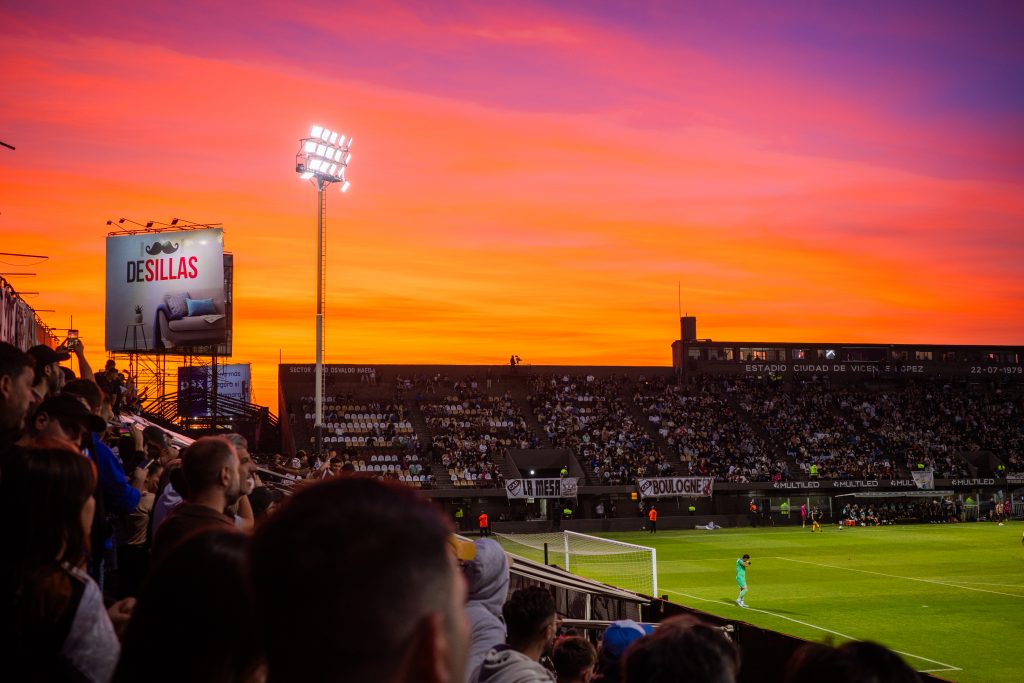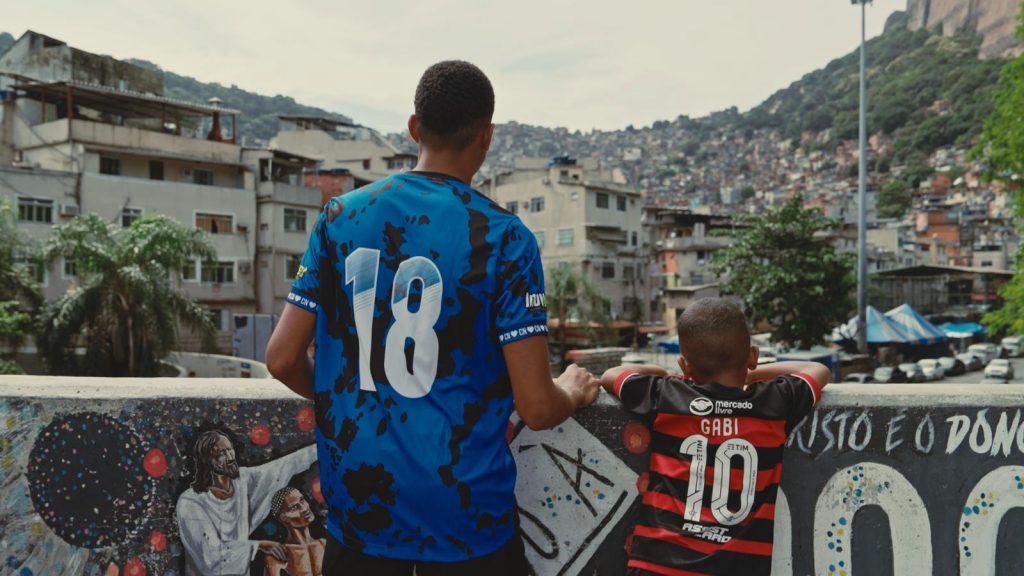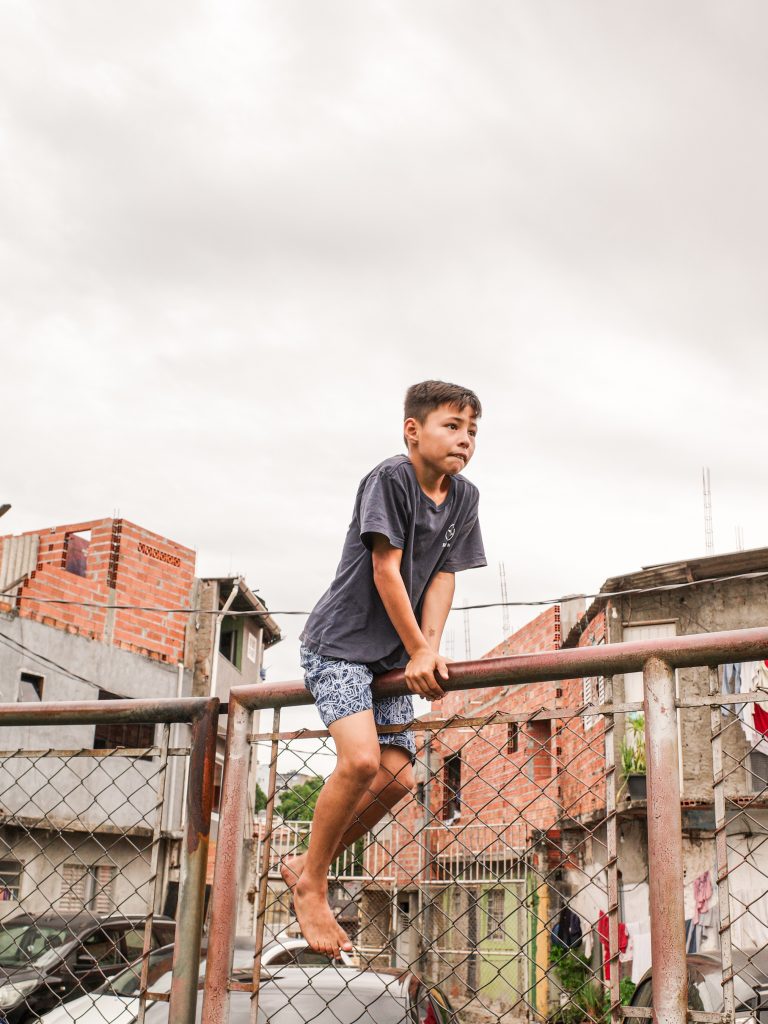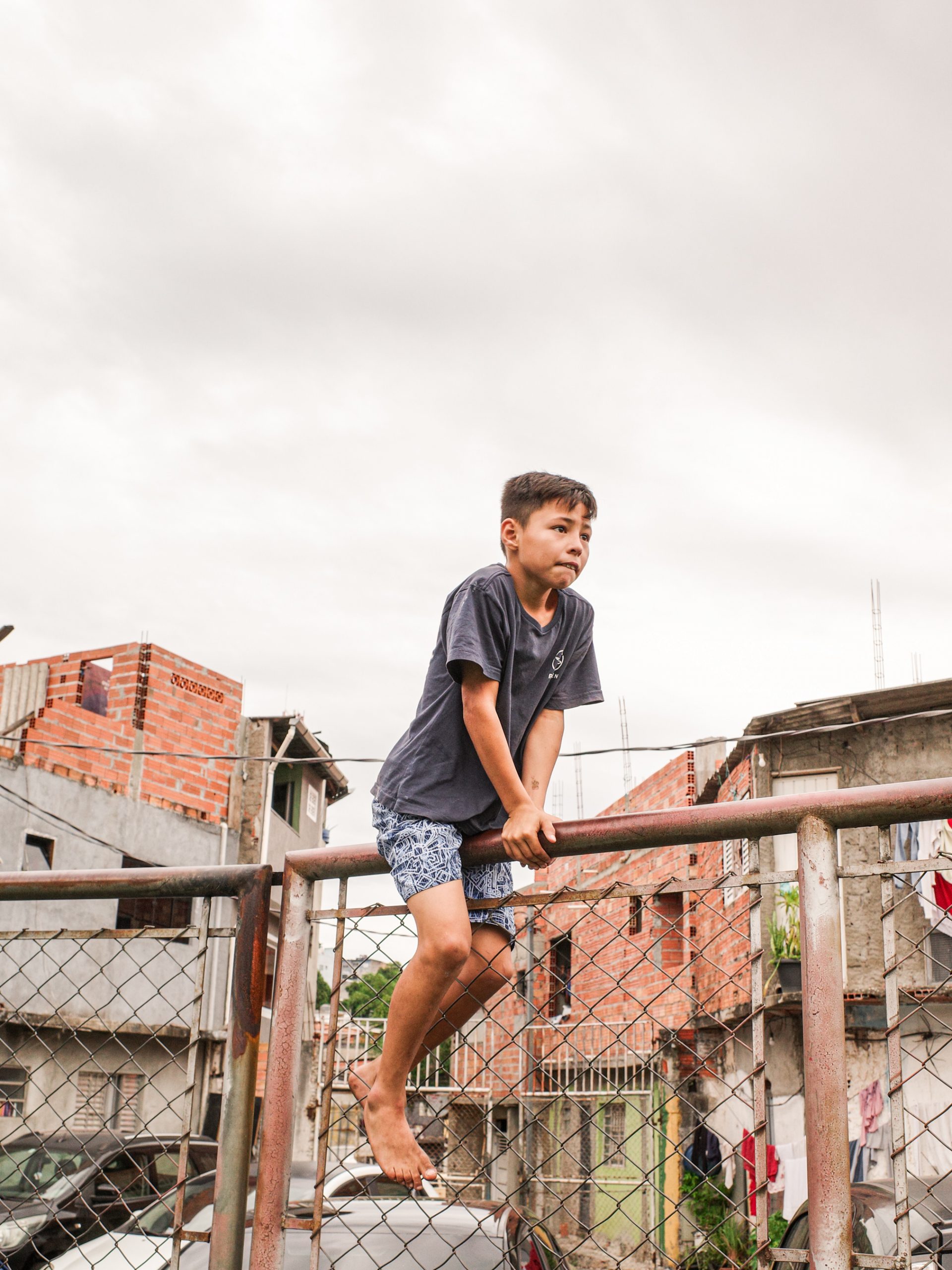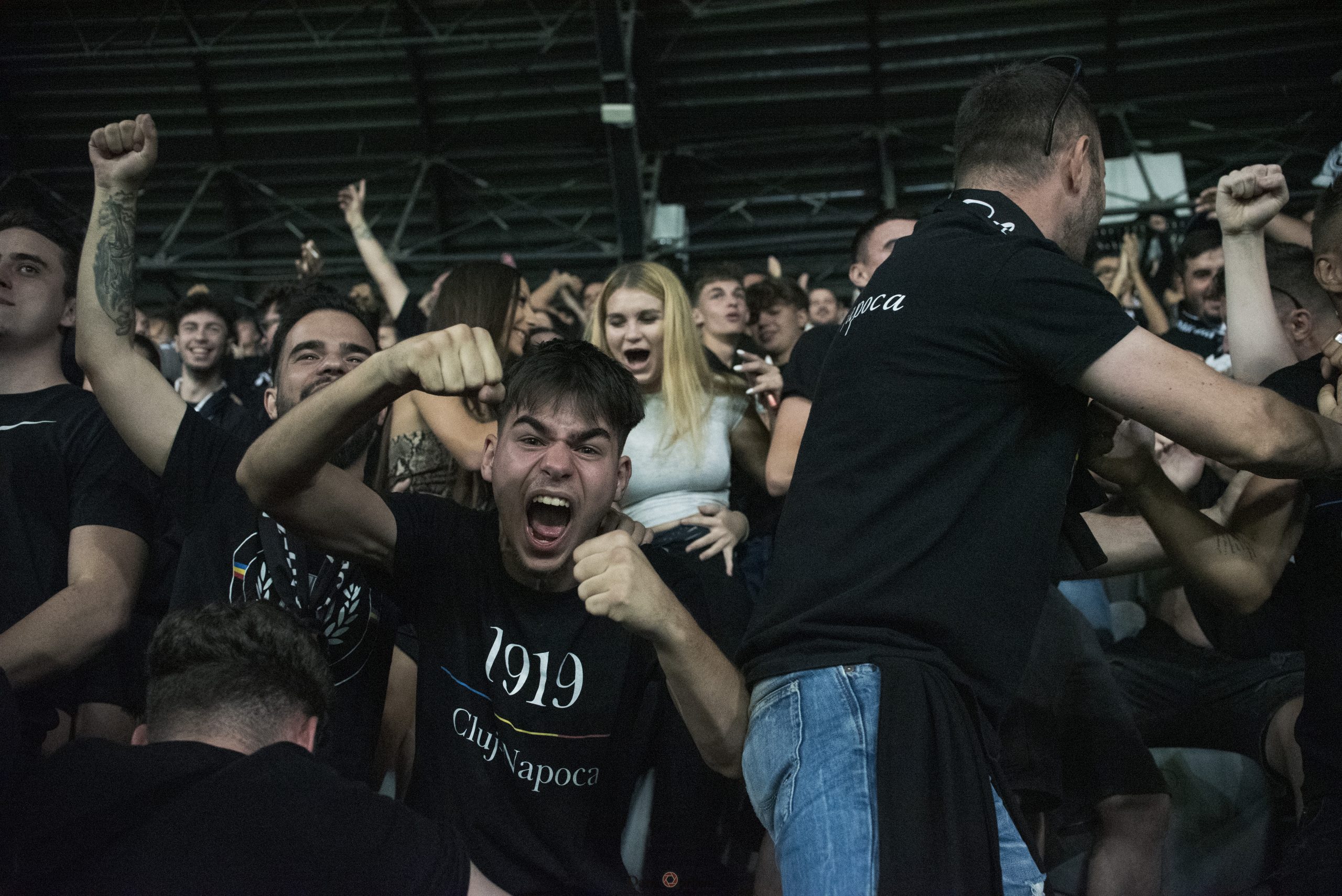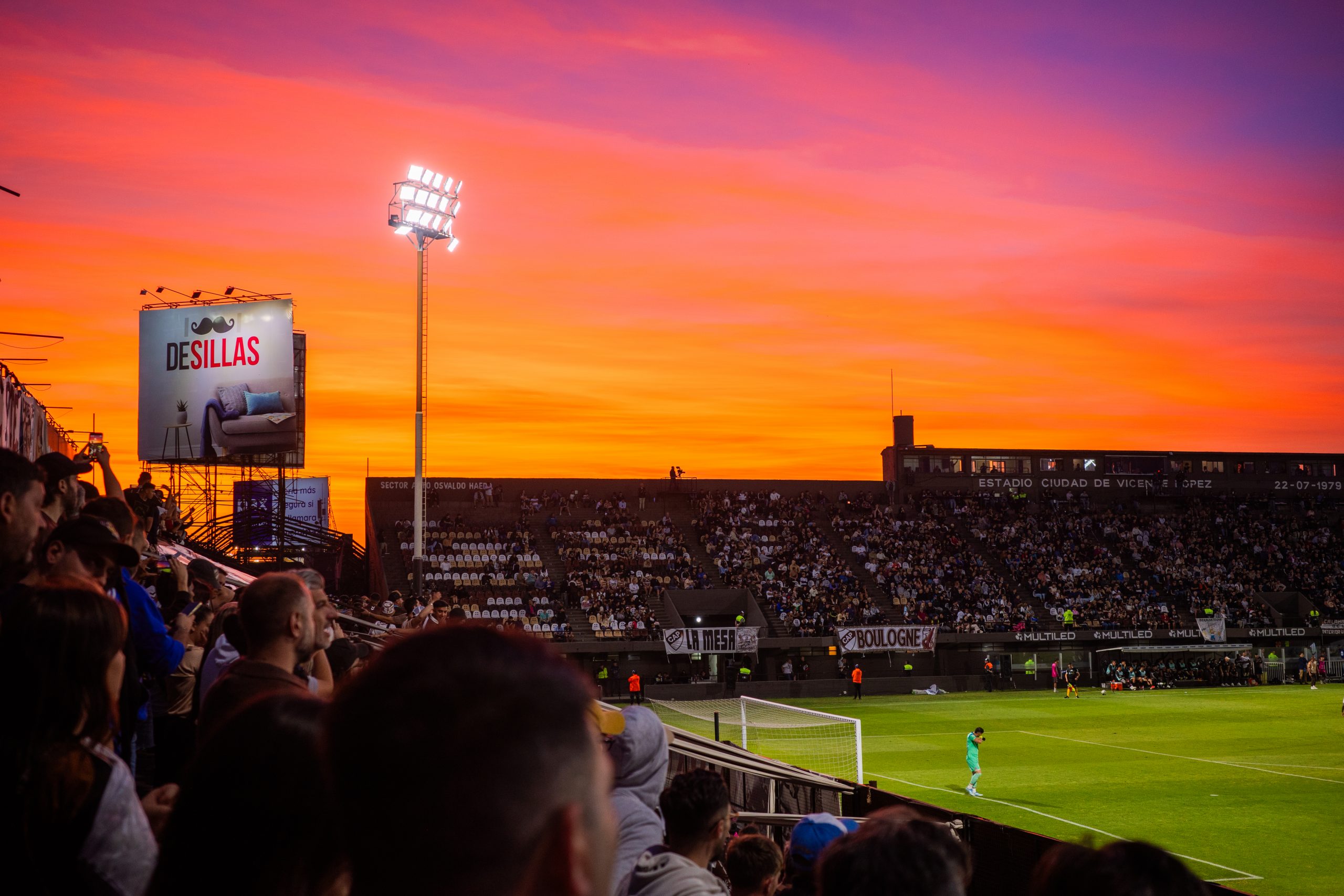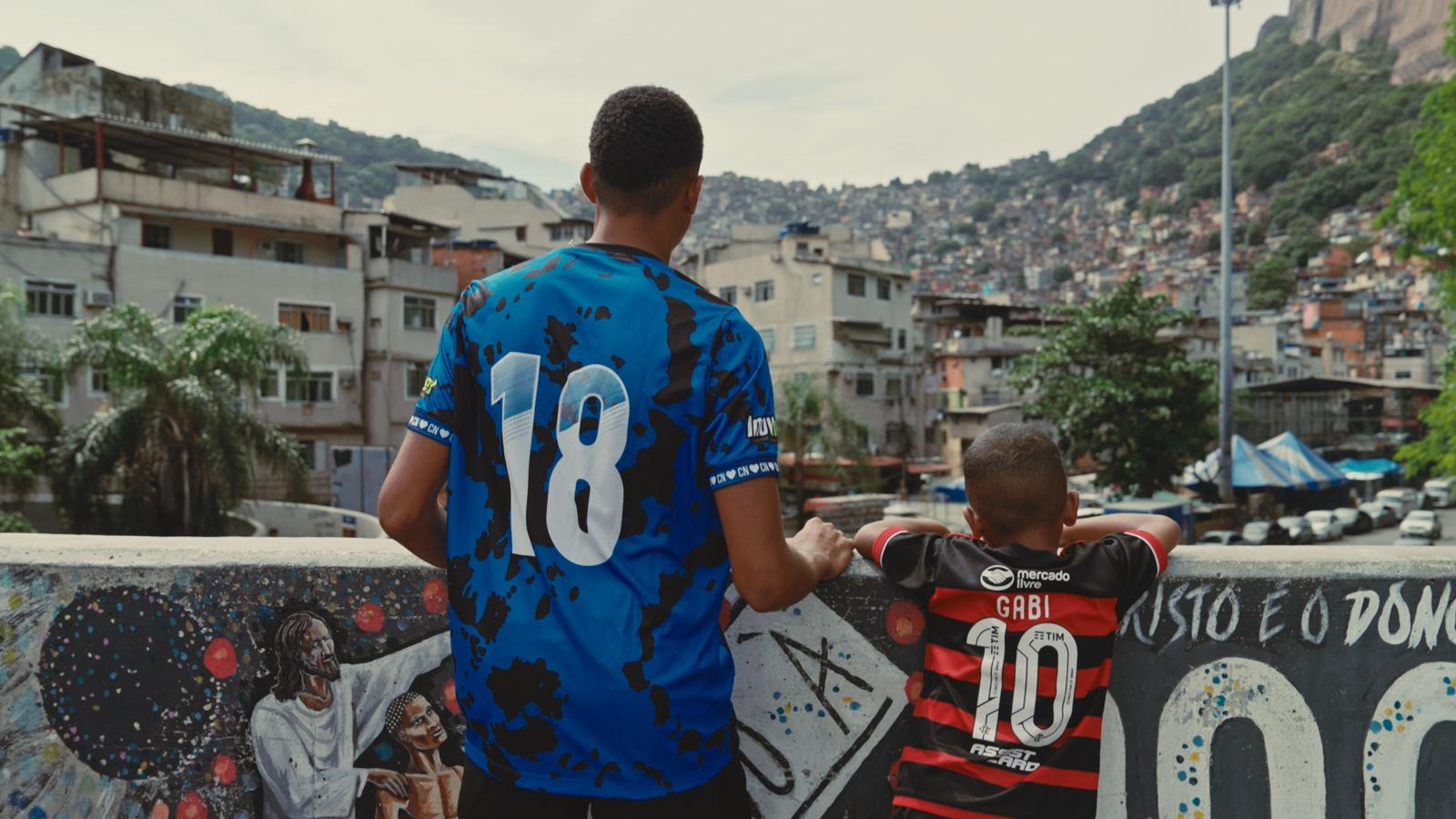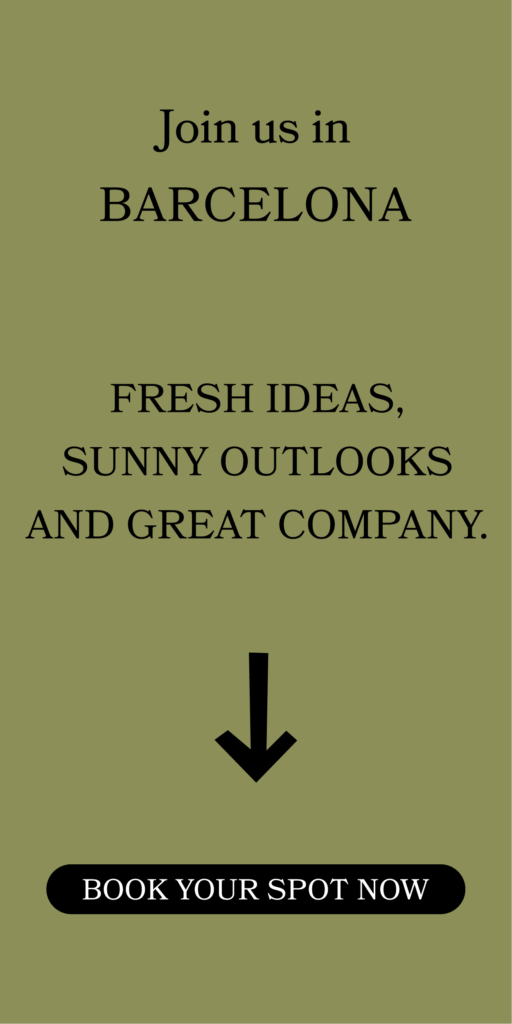Image and words by Jonas Zöller
After the frustration with tickets, I had fired shots in every direction, posting on social media and asking for any help. I did not expect much when Simone suddenly slid into my DMs.
I sit down in a bar and read her message. She had spent a semester abroad the year before and faced the same problem. Her approach had been to write directly to the clubs, asking for press accreditation. To her surprise, it worked.
She passes me her contacts and sends me a video on top. The footage shows the fans of La U: flares, fireworks, a mass of bodies celebrating — exactly what I had come here for.
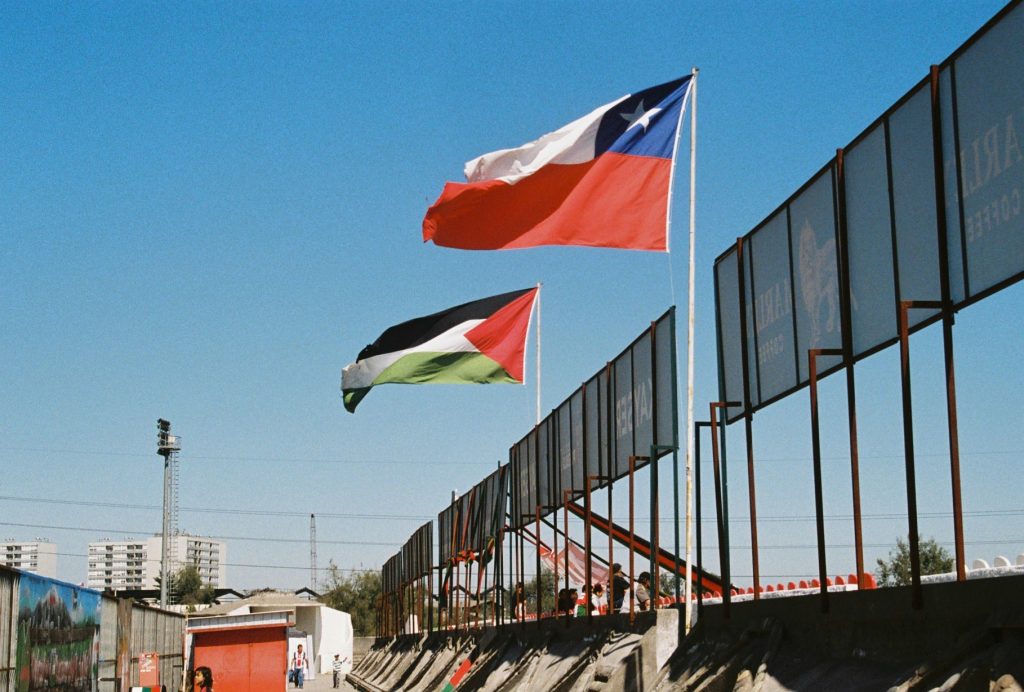
Estadio Municipal de La Cisterna
The next day, I am back in an Uber — this time to the Estadio Municipal de La Cisterna. Club Deportivo Palestino was founded in 1920 by Palestinian immigrants and has since won two league titles and three domestic cups. Yet the club is far more than a football team.
The Palestinian colours are everywhere; Arabic music drifts through the stands; the graffiti on the walls speaks of Israeli oppression. I am not prepared for how political the place feels.
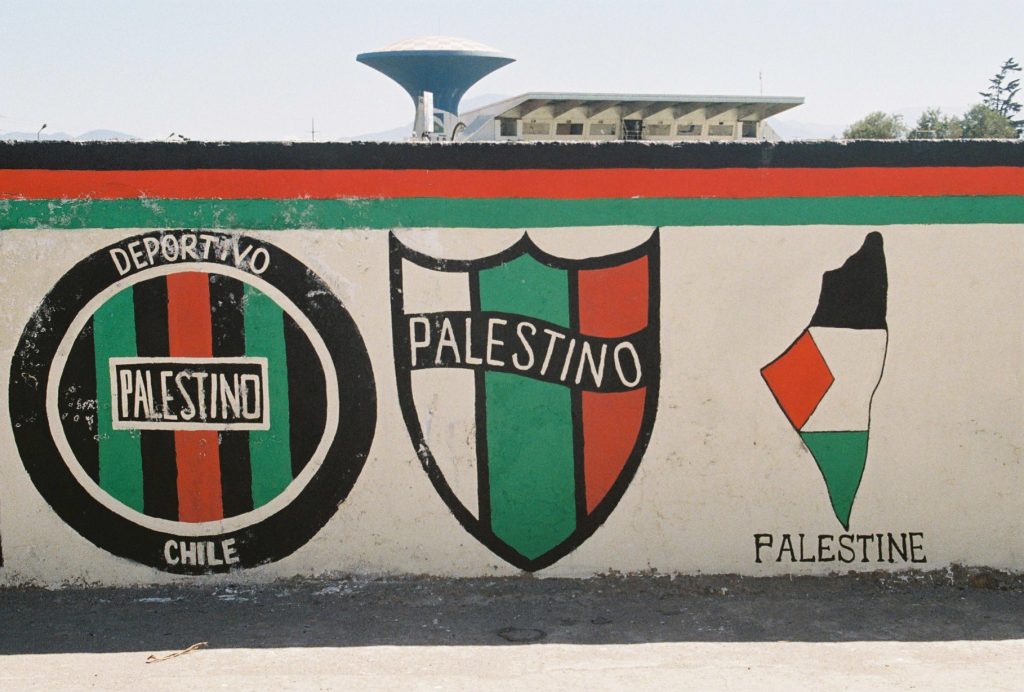
I also look the part of a foreigner. People spot me straight away, and when they notice my press armband, they begin to speak to me about Palestine. My Spanish is nowhere near good enough to follow everything, but I understand enough to hear their desperation. I lack the words to explain myself — and in truth, I would not know what to say anyway.
Suddenly, a TV crew appears and asks if they can interview me, a German reporter, for their Palestinian-Chilean channel. I am caught off guard but scrape together enough Spanish to thank the club for the opportunity and add a short: “Free Palestine.”
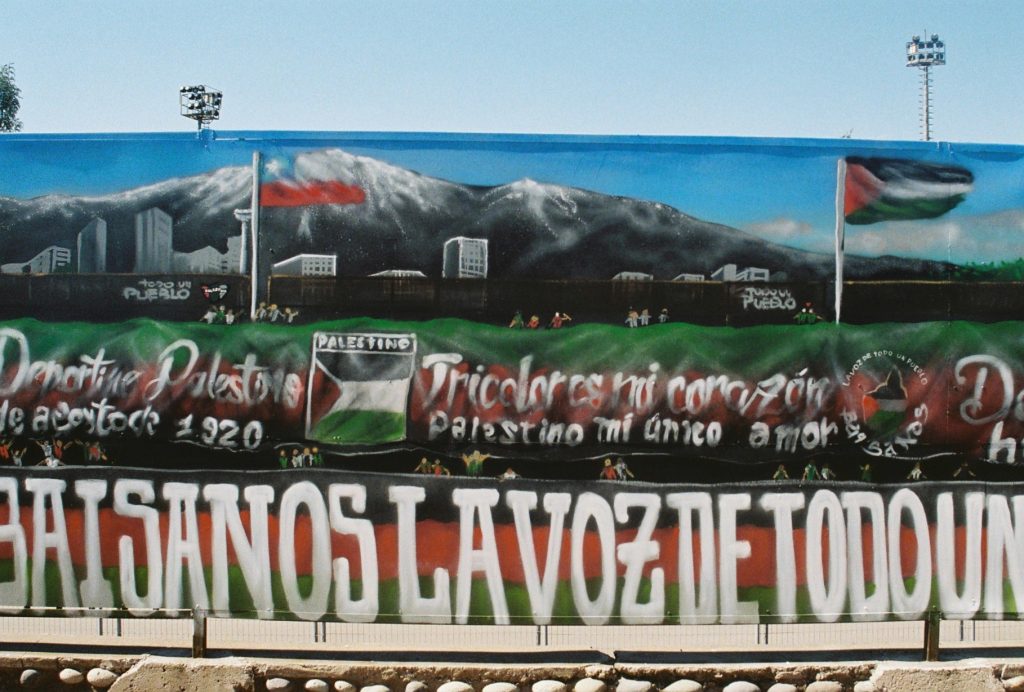
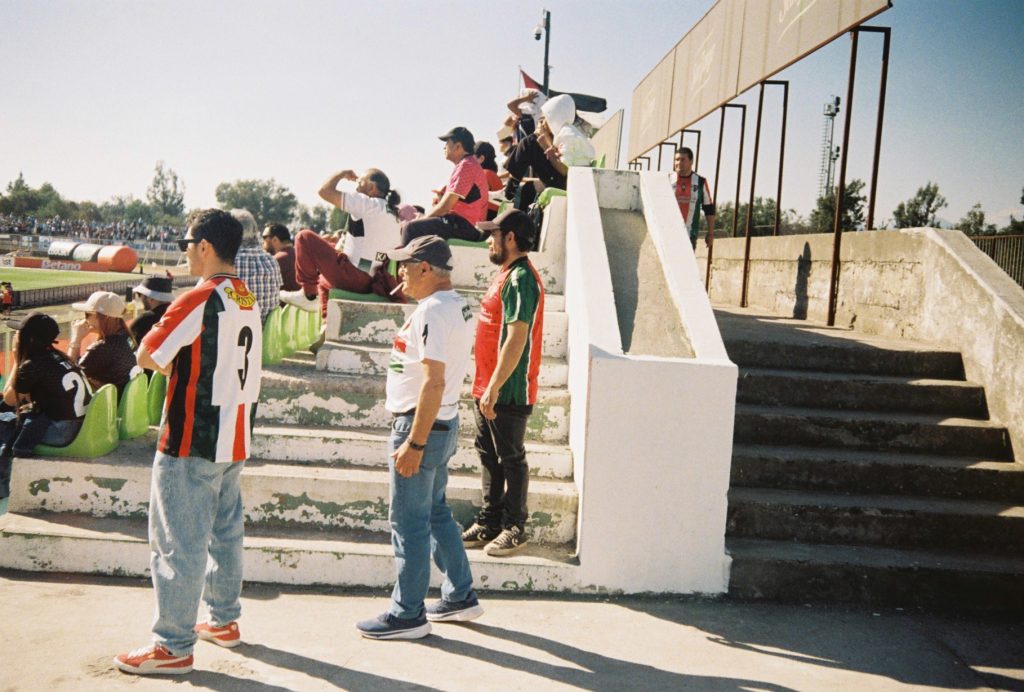
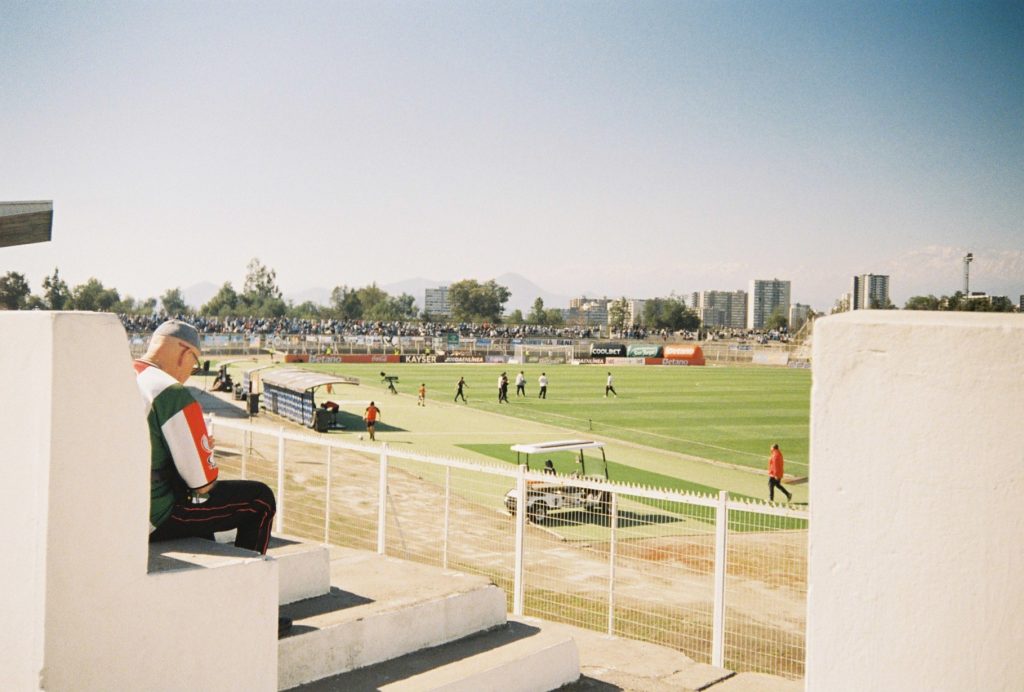
The Match
For all the weight of the politics, the atmosphere is warm. People laugh, pose for photos, carry themselves with pride. When the away fans from Rancagua arrive, my focus shifts back to the game. Around a thousand of them fill the stand, and for the first time, I feel a taste of the South American intensity I have been looking for.
The songs rise in rhythm, their volume carrying into the press box where I sit.
On the pitch, the visitors go ahead in the first half and double their lead after the break. A curling free kick pulls one back, but it ends 2–1. The locals are disappointed with the loss, of course — and still, I leave with the feeling that the real game is being fought in Gaza, on a pitch far away from here.
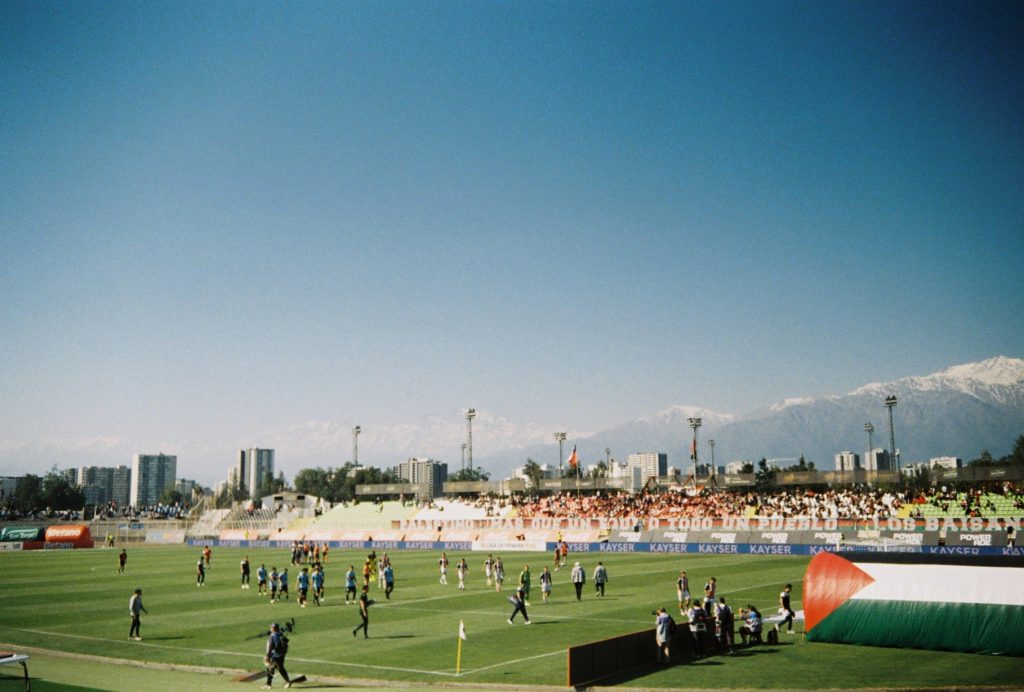
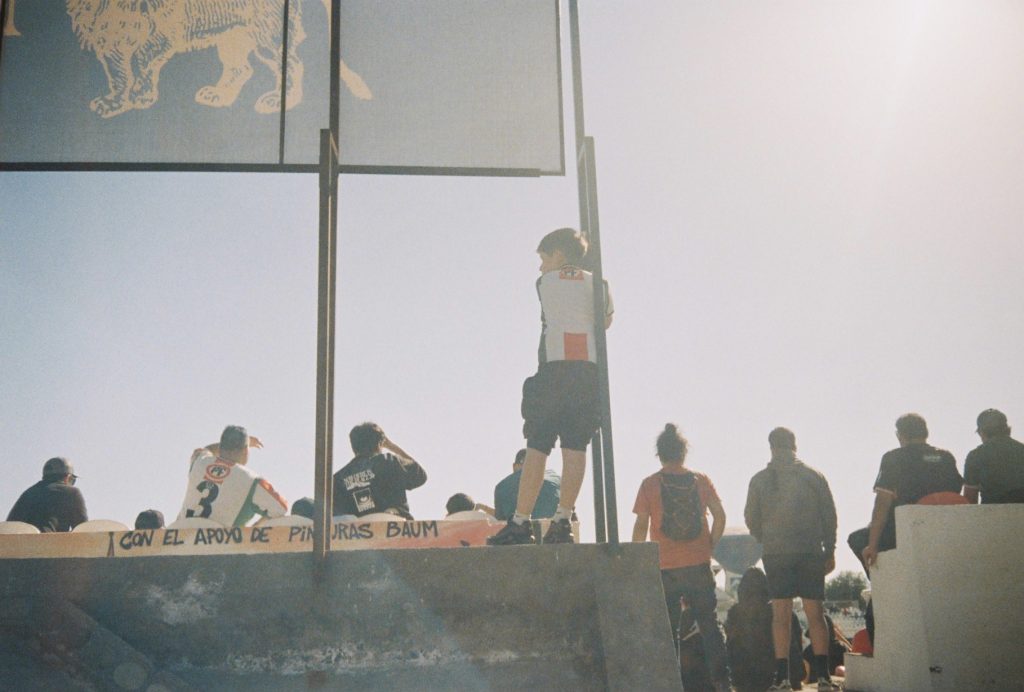
Reflections
On the way back to my hostel, I sit in the back of the car with mixed feelings. I did not expect the war in Palestine to weigh so heavily on me that day. My first press accreditation, a strong away following, and the heat of the sun leave me drained.
When evening comes, I skip the trip to the La U team hotel, where the barra brava are gathering to light the spark before the Chilean Superclásico against Colo-Colo.
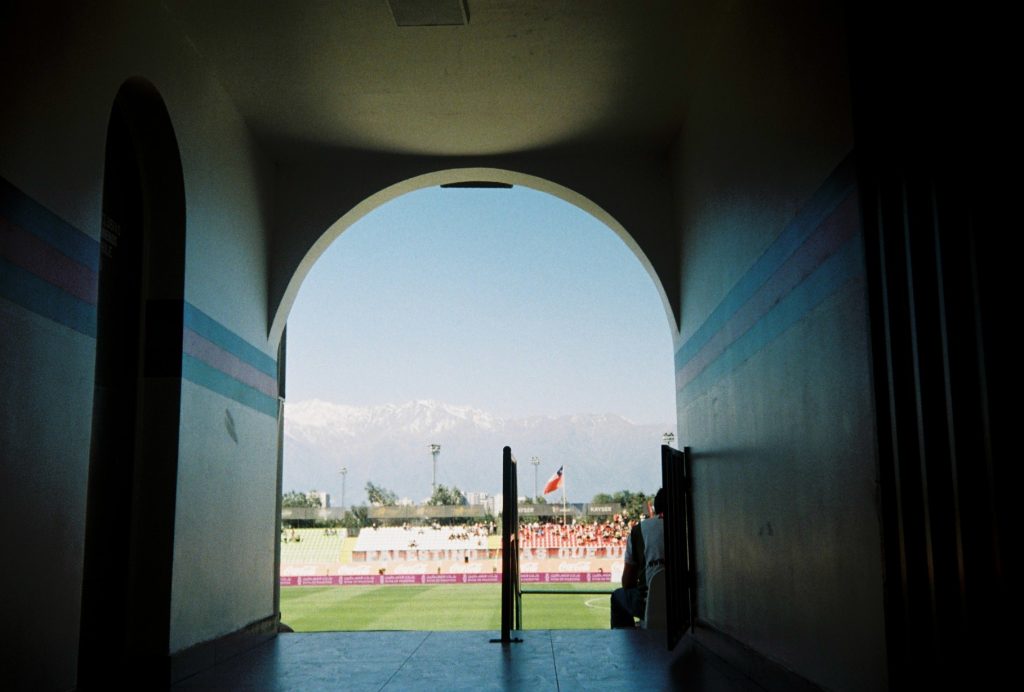
All words and images by Jonas Zöller.
You can follow Jonas on social media by clicking here


